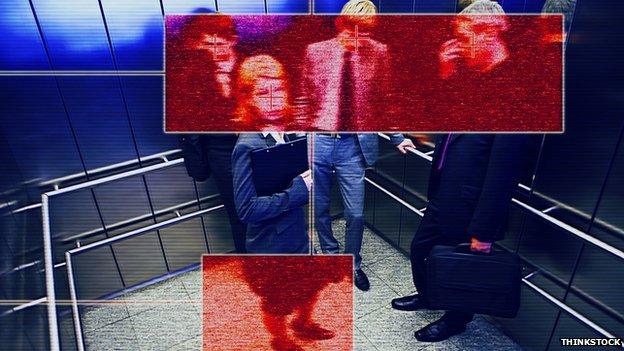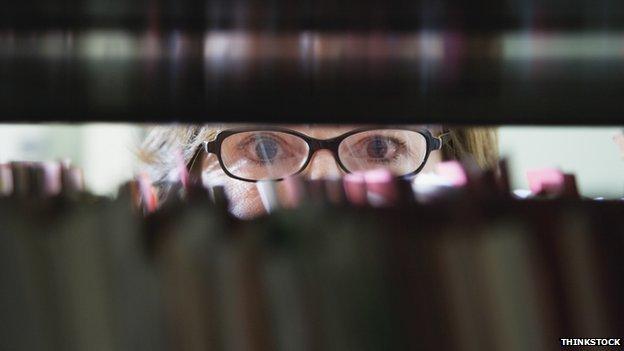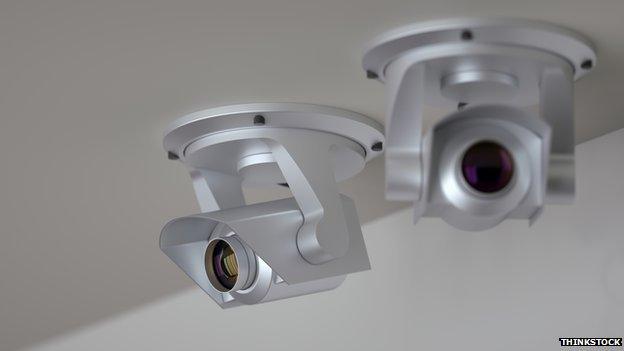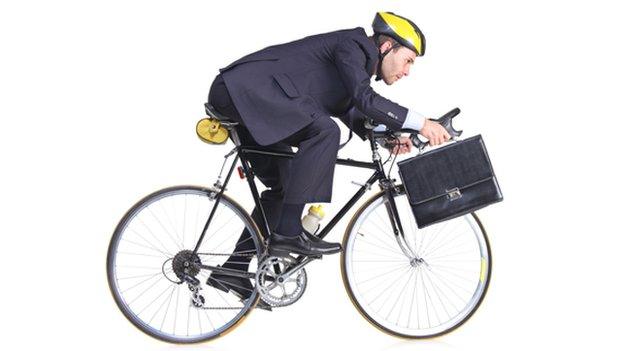Big Brother at work may be no bad thing
- Published

The next time you talk to someone at work who's wearing a name badge, look at it very closely - it might not actually be a badge at all, but a sensor. It might be telling your employer who you're talking to and in what sort of tone of voice, writes Lucy Kellaway.
This isn't a brave new world; this is now.
Such devices are dirt cheap and companies are increasingly taking note. It's pretty scary. Yet is the arrival of Big Brother in the corporate world quite such a bad thing?
Being constantly monitored by invisible devices might sound terrifying but I'm not sure it is any more so than being monitored infrequently by visible human beings.
Under the present arrangement, we are observed in a haphazard and unscientific way by superiors who may well have made their minds up about us already, based on not much evidence at all.
Sod's Law decrees that when you do something good, no-one notices but the minute you do something bad you get caught.

I remember one boss who, once in a blue moon, would walk around the office; whenever he crept up behind me I was invariably writing a shopping list or was on the phone to my mum.
Such surveillance did not improve my behaviour, though it did increase my sense of injustice. To have been monitored all the time - which would have put the shopping list in the context of otherwise diligent behaviour - would have been a vast improvement.
In most offices a raft of mainly pointless, cumbersome tools are used to assess performance, including "competency matrices", appraisal interviews and psychometric testing. Together they are so ineffective that according to a delightful piece of research by the University of Catania, external, companies would be no worse off if they promoted people at random.
So if we are in favour of meritocracies, we should also be in favour of anything that helps us measure merit more accurately.
While the data collected by the new sensors are almost certainly too crude to offer much help now, I see no reason why in time (and probably quite soon) we will not have worked out exactly which behavioural quirks are the key to high (or low) performance, and found a decent, objective way of measuring them.
You could say that monitoring behaviour in offices would kill trust and spontaneity, making robots of us all.

But so long as everyone knew they were being monitored and understood what for, I don't see why it should be such a terrifying idea - except perhaps for those who bully, shout at or harass others and who have until now been getting away with it.
Far from making work less civilised, the arrival of Big Brother could make it more so. Office life could become more transparent and less political. And managers would be freed from having to play the role of policeman all day and allowed to get on with the more important role of helping people do a better job.
Above all, for the system to work, you would need to have some faith in the regime that implemented it. But then, if you don't have any faith in the regime, the chances are that you are done for anyway.
Lucy Kellaway is an author and Financial Times columnist. Listen to her on Business Daily and World Business Report on BBC World Service every Monday.
- Published10 April 2014

- Published13 January 2014

- Published16 December 2013
